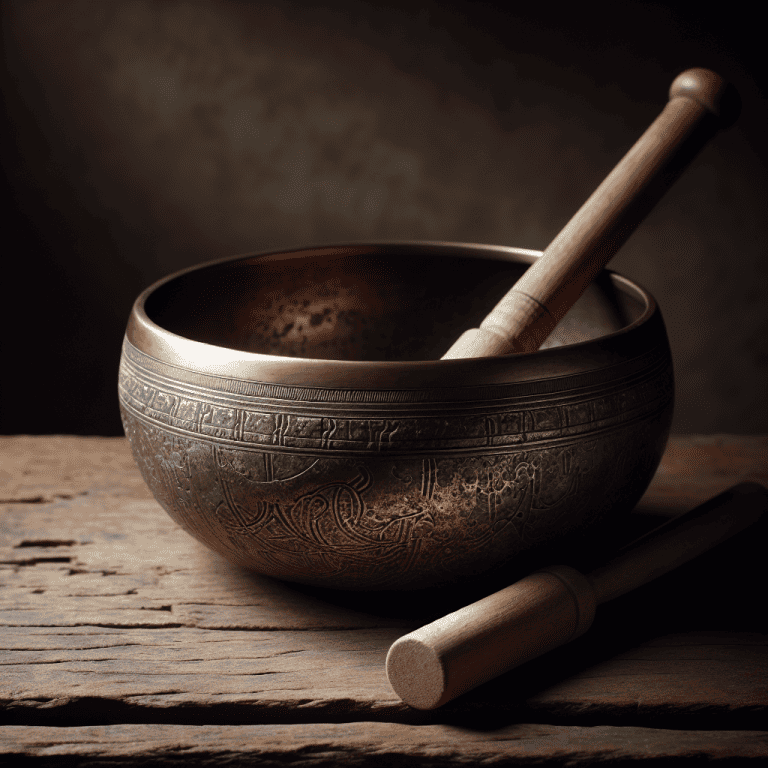Natural Foods Supporting Pineal Gland Function & Health Benefits

Wellness Fixation is reader supported, meaning I may earn a small commission if you purchase something through my links at no extra cost to you. Thanks for your support! Learn more
Key Takeaways
- Turmeric is a powerful anti-inflammatory that can help detoxify the pineal gland.
- Chlorella assists in removing heavy metals, supporting pineal gland health.
- Beets contain boron, aiding in the detoxification process of the pineal gland.
- Maintaining a diet low in fluoride and phosphorus is crucial for a healthy pineal gland.
- Incorporating these foods into your daily meals can enhance sleep and hormone regulation.
Importance of the Pineal Gland in Overall Health
The pineal gland, a small endocrine organ located deep within the brain, often goes unnoticed in discussions about health. Yet, it plays a pivotal role in regulating sleep and maintaining our body’s circadian rhythms. Most importantly, the pineal gland produces melatonin, a hormone that influences sleep patterns and has antioxidant properties.
Function and Role of the Pineal Gland
The primary function of the pineal gland is to produce melatonin, which regulates sleep-wake cycles. This tiny gland is sensitive to light, with melatonin production peaking during the night. Besides that, it influences reproductive hormones, impacting the onset of puberty. Understanding the pineal gland’s functions can help us appreciate the significance of maintaining its health through natural means.
Impact of Pineal Gland on Sleep and Hormone Regulation
Our sleep quality and hormonal balance are intricately linked to the pineal gland’s health. An imbalance in melatonin production can lead to sleep disorders, affecting overall well-being. Additionally, the pineal gland’s role in hormone regulation underscores the importance of keeping it in optimal condition. Supporting this gland naturally can lead to better sleep and improved mood.
Health Benefits of a Well-Functioning Pineal Gland
When the pineal gland is functioning well, it has a positive ripple effect on various aspects of health. Improved sleep quality, balanced hormones, and even enhanced mental clarity can result from a healthy pineal gland. Therefore, it’s crucial to support its function through diet and lifestyle choices.
Influence on Circadian Rhythms
The pineal gland is central to regulating our circadian rhythms, which are the natural cycles that dictate sleep and wakefulness. A well-functioning pineal gland ensures that melatonin is released at the right times, promoting restful sleep and alertness during the day. This synchronization is essential for maintaining energy levels and overall health.
Moreover, disruptions in circadian rhythms can lead to various health issues, including insomnia and mood disorders. By supporting the pineal gland, we can help maintain these rhythms, contributing to better mental and physical health.
Connection to Mental and Spiritual Well-being
Beyond its physiological roles, the pineal gland is often associated with mental and spiritual well-being. Some cultures refer to it as the “third eye,” believing it to be a gateway to higher consciousness. While scientific evidence on this is limited, many individuals report enhanced intuition and clarity when focusing on pineal gland health.
This connection to mental and spiritual well-being highlights the importance of supporting the pineal gland through natural foods and lifestyle practices. By doing so, we can potentially unlock greater insights and a deeper sense of peace.
Essential Natural Foods for Pineal Gland Support
Supporting the pineal gland with natural foods is a proactive approach to enhancing its function. Certain foods are known for their detoxifying properties, which can help keep this gland in peak condition. Let’s explore some of these powerful foods and their benefits, and learn more about pineal gland detox methods.
Turmeric and Its Anti-inflammatory Properties
Turmeric, a vibrant yellow spice commonly used in Indian cuisine, is renowned for its anti-inflammatory properties. The active compound in turmeric, curcumin, can help detoxify the pineal gland by reducing inflammation and combating oxidative stress.
- Curcumin has been shown to protect the brain from fluoride exposure, which can calcify the pineal gland.
- Incorporating turmeric into your diet is simple; add it to soups, curries, or even a warm glass of milk.
- For enhanced absorption, pair turmeric with black pepper, which contains piperine, a compound that boosts curcumin’s bioavailability.
By regularly consuming turmeric, you can support your pineal gland’s health and potentially enhance your overall well-being.
Chlorella’s Role in Detoxification
Chlorella, a type of green algae, is a powerful detoxifying agent. It’s rich in chlorophyll, which aids in cleansing the body of toxins and heavy metals. This makes it particularly beneficial for the pineal gland, which can accumulate harmful substances over time.
One of the most remarkable properties of chlorella is its ability to bind to heavy metals, such as mercury and lead, and remove them from the body. By doing so, it helps protect the pineal gland from calcification, which can impair its function. Including chlorella in your diet can be as simple as adding it to smoothies or taking it in supplement form.
Benefits of Beets in Metal Removal
Beets are another excellent food for supporting pineal gland health. They contain boron, a mineral that plays a crucial role in the detoxification process. Boron helps remove heavy metals from the body, reducing the risk of calcification in the pineal gland.
Besides their detoxifying properties, beets are also rich in antioxidants, which protect the gland from oxidative stress. Including beets in your diet is easy; you can roast them, add them to salads, or blend them into juices. Regular consumption of beets can aid in maintaining a healthy pineal gland, thereby supporting better sleep and overall well-being.
Importance of Iodine for Pineal Health
Iodine is an essential mineral that supports various bodily functions, including the health of the pineal gland. It plays a vital role in detoxification, helping to flush out fluoride and other harmful substances that can accumulate in the gland.
Ensuring adequate iodine intake can prevent calcification and promote the optimal functioning of the pineal gland. Foods rich in iodine include sea vegetables like kelp and nori, as well as fish and dairy products. For those who may not get enough iodine through diet alone, iodine supplements are available, but it’s always best to consult with a healthcare professional before starting any new supplement regimen.
Incorporating Pineal Gland-Supportive Foods into Daily Diet
Now that we’ve explored some powerful foods that support the pineal gland, let’s discuss how to incorporate them into your daily diet. By making small adjustments to your meals and snacks, you can enjoy the benefits of these foods without much effort.
One effective way to include these foods is by starting your day with a nutrient-rich smoothie. Blend chlorella, beets, and a pinch of turmeric with your favorite fruits for a refreshing and detoxifying drink. This not only supports your pineal gland but also provides a boost of energy to kickstart your day.
Simple Recipes and Meal Ideas
Creating meals that support pineal gland health doesn’t have to be complicated. Here are a few simple ideas to get you started:
- Turmeric Lentil Soup: Add turmeric to your favorite lentil soup recipe for a flavorful and health-boosting dish.
- Beet Salad: Combine roasted beets with goat cheese, walnuts, and a drizzle of balsamic vinaigrette for a delicious salad.
- Chlorella Smoothie: Blend chlorella with spinach, banana, and almond milk for a refreshing and detoxifying smoothie.
These recipes are not only easy to prepare but also packed with nutrients that support the pineal gland. Feel free to experiment with different combinations to find what works best for your taste and lifestyle.
Tips for Including Superfoods in Snacks
Snacks are an excellent opportunity to incorporate superfoods that support the pineal gland. Consider these tips for making your snacks more nutrient-dense:
- Add Turmeric to Hummus: Mix turmeric into your hummus for an anti-inflammatory boost.
- Beet Chips: Slice beets thinly, season with your favorite spices, and bake for a crunchy snack.
- Chlorella Energy Balls: Combine dates, nuts, and chlorella powder to create nutritious energy balls.
These snack ideas are simple to prepare and provide a convenient way to support your pineal gland throughout the day.
Understanding Serving Sizes
When incorporating these foods into your diet, it’s important to understand appropriate serving sizes to maximize benefits without overconsumption. For example, a teaspoon of turmeric or a tablespoon of chlorella powder is typically sufficient for daily use. Beets can be enjoyed more liberally, but it’s wise to balance them with other vegetables to maintain a varied diet.
Paying attention to serving sizes ensures that you receive the nutritional benefits without overwhelming your system. If in doubt, consulting a nutritionist can provide personalized guidance based on your dietary needs.
Lifestyle Changes for Enhanced Pineal Gland Function
Beyond diet, certain lifestyle changes can further support the health of your pineal gland. Reducing exposure to fluoride and phosphorus is crucial, as these substances can lead to calcification.
Consider using fluoride-free toothpaste and filtering your drinking water to minimize fluoride intake. Additionally, maintaining a balanced and nutritious diet rich in fruits, vegetables, and whole grains supports overall health and, by extension, the pineal gland.
Reducing Fluoride and Phosphorus Exposure
To protect your pineal gland, it’s essential to reduce exposure to fluoride and phosphorus. Fluoride, commonly found in tap water and dental products, can accumulate in the pineal gland, leading to calcification. Therefore, consider using fluoride-free toothpaste and drinking filtered or bottled water to minimize fluoride intake.
Phosphorus, while necessary for health, should be consumed in moderation. High phosphorus levels can contribute to calcification. Focus on a balanced diet that includes phosphorus-rich foods like dairy and meat in controlled portions, and complement them with plenty of fruits and vegetables to maintain a healthy balance.
Tips for Maintaining a Balanced and Nutritious Diet
A balanced diet is crucial for overall health and can significantly impact the pineal gland. Prioritize whole foods over processed ones, as they are more nutrient-dense and free from harmful additives. Include a variety of colorful fruits and vegetables, lean proteins, and whole grains in your meals.
Besides that, pay attention to portion sizes to avoid overconsumption of any particular nutrient. A varied diet ensures you receive all the essential vitamins and minerals your body needs to function optimally. Hydration is also key, so drink plenty of water throughout the day to support detoxification processes.
Other Natural Methods to Support Pineal Health
In addition to dietary changes, other natural methods can enhance pineal gland health. Regular exposure to natural sunlight helps regulate melatonin production, so spend time outdoors daily. Practicing mindfulness and meditation can also support mental well-being and indirectly benefit the pineal gland.
- Sunlight Exposure: Aim for at least 15 minutes of sunlight each day to help regulate circadian rhythms.
- Meditation: Engage in meditation practices to reduce stress and promote mental clarity.
- Adequate Sleep: Ensure you get enough restful sleep each night to support the body’s natural detoxification processes.
These lifestyle changes, combined with a nutrient-rich diet, create a holistic approach to maintaining a healthy pineal gland.
Frequently Asked Questions (FAQ)
Many people have questions about the pineal gland and how to support its health. Here are some common inquiries and their answers.
How does fluoridation affect the pineal gland?
Fluoridation can lead to the accumulation of fluoride in the pineal gland, potentially causing calcification. This calcification can impair the gland’s ability to produce melatonin, affecting sleep and hormonal balance. Reducing fluoride exposure through water filtration and using fluoride-free products can help mitigate these effects.
Can lifestyle changes reverse pineal gland calcification?
While completely reversing calcification may be challenging, certain lifestyle changes can help reduce its progression and support overall gland health. These include reducing fluoride and phosphorus intake, maintaining a balanced diet, and incorporating detoxifying foods like turmeric and chlorella into your meals.
Additionally, engaging in regular physical activity and ensuring adequate sleep can support the body’s natural detoxification processes, promoting a healthier pineal gland.
What are simple ways to add turmeric to meals?
Incorporating turmeric into your meals is easy and adds a burst of flavor. You can sprinkle it on roasted vegetables, stir it into soups and stews, or add it to rice and grain dishes. For a refreshing drink, mix turmeric with warm milk and honey for a soothing turmeric latte.
Are supplements necessary for pineal gland health?
While a balanced diet should provide most of the nutrients needed for pineal gland health, some individuals may benefit from supplements. If you suspect deficiencies, consult with a healthcare professional who can recommend appropriate supplements like iodine or chlorella. Always prioritize getting nutrients from whole foods first, as they offer a range of benefits beyond isolated supplements.








